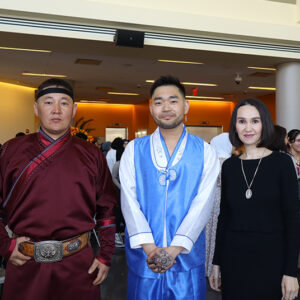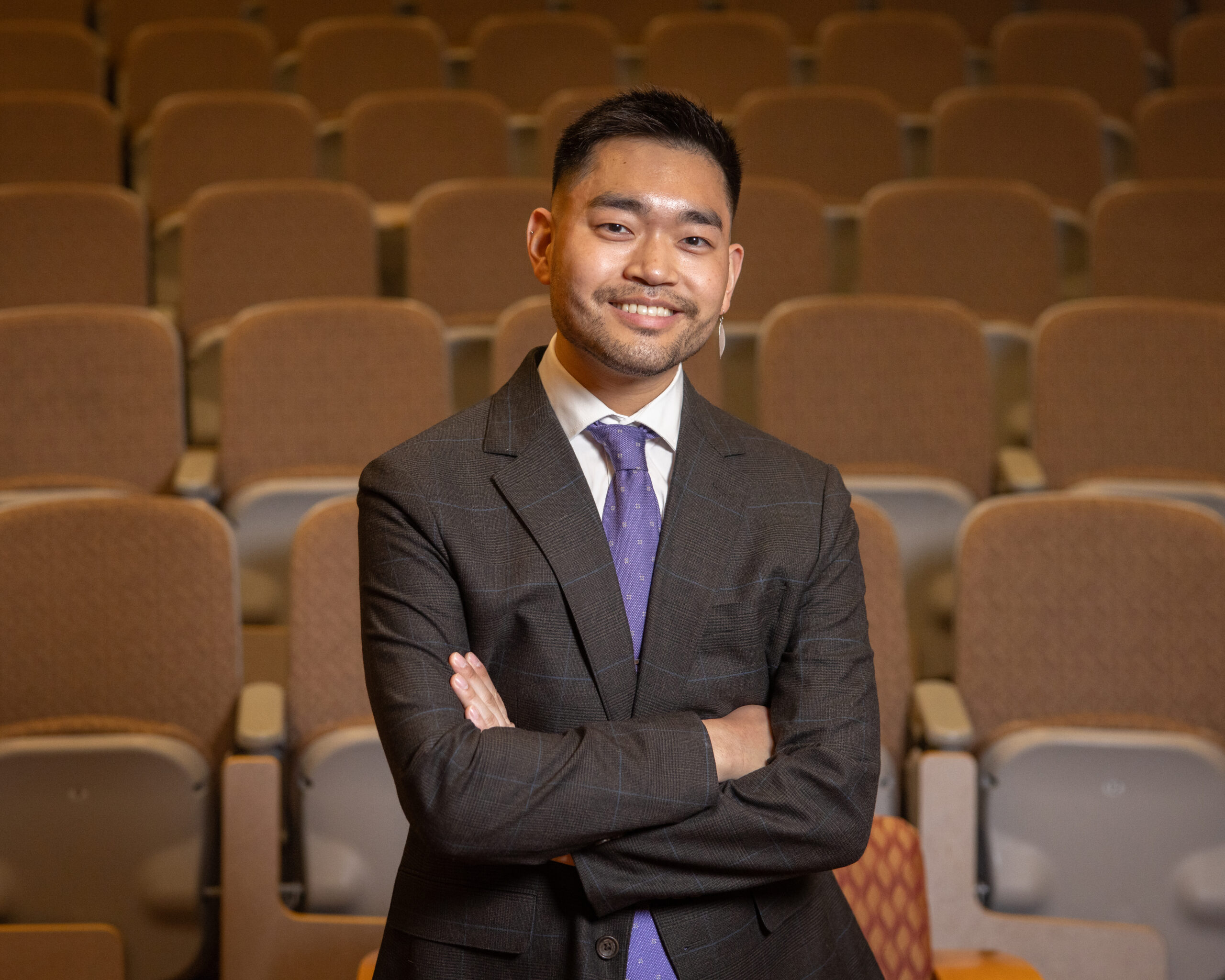If the acronym AANAPISI (pronounced ah-nuh-pee-see) rolls right off of Christopher Won’s tongue, it’s due to an occupational hazard. The new director of the Brooklyn College AANAPISI Project, known around campus as BCAP, has traveled in social justice and diversity, equity, and inclusion circles for most of his career.
And not just his work, but his broader life experiences have left him well-versed on the kinds of ideals that an Asian American Native American Pacific Islander Serving Institution should live up to. Won is of Korean heritage and moved to Boston with his family when he was 9 years old, and then to Juneau, Alaska before moving to New York City. He refers to each city by its indigenous name: Shawmut for Boston, Łingít Aaní for Juneau, and Lenapehoking for New York City.
He has been, at turns, a tattoo artist, a public school and university teacher, and a diversity, equity, and inclusion officer at Columbia University’s School of Social Work, Columbia University Irving Medical Center, and the New Jersey Institute of Technology.
In his new position, an outgrowth of a nearly $2 million grant from the U.S. Department of Education, he’s looking to create a center that will serve as a hub for all things—curricular and otherwise—AANAPI at the college.
He joined Brooklyn College in February and has hit the ground running, already working on a physical overhaul of BCAP’s second-floor Boylan Hall office and hosting a well-attended Tea Ceremony earlier this month as well as a pop-up shop to welcome the campus to BCAP’s new space.
We talked to him about his very busy first semester, his plans for the program, and the diverse Asian and Pacific Islander community at the college.
For the new guy on campus, you really have been getting around.
Outreach, relationship building, and resource development is the name of the game in your first year, right? It is a big part of what we are doing to build a strong foundation for this project to take hold.
We are focused on three main items: academic affairs and curriculum; social emotional learning and culturally responsive teaching, or culturally responsive services; and community engagement and leadership development.
We’re hoping to design an Asian-American Studies program—a minor, major, or concentration. This would include a research methods course and a community engagement project-based course, and it would involve faculty members from various departments. We’d also love for it to include a research symposium.
What will your culturally responsive services look like?
That really has to do with making sure that the institute itself is accountable to the very students whom we are serving in addition to recognizing the value of their individual strengths and their backgrounds and cultural heritage. It’s also making sure that we are integrating the very fabric of their languages, different types of media, and learning styles into the ways we exist as an institution.
That’s something that people often forget. When you think of mental health services, people just think that it’s specific to the mind when, in fact, our very ancestral practices, languages, food, everything is mental health. I love to use the comparison that while we always tell people to exercise self-care, what we really need is community care. We need mutual aid. That’s really what’s going to create a safety network for a lot of these folks to thrive.

Christopher Won (center) at the Tea Party pictured with performers.
And the community engagement and leadership development?
That will be leadership training, workshops on imposter syndrome, connecting students with the Magner Career Center, and things like that. One of our priorities is connecting with local community organizations and leaders to see if there are any opportunities for students to intern.
And it sounds like you are doing something different with your office space?
We are very lucky to have some cool real estate in Boylan Hall—2149 and 2153. It’s going to be a hybrid student/administrator suite or a center/office. I’m hoping to design it in the model of a home. We’ll have different areas that will serve as a living room, kitchen, dining room, study/library. That way, it’s already sort of giving a familiarity with a campus environment that sometimes can be very isolating, especially for the heavily commuter-based population at Brooklyn College.
And you’ve already hosted two pretty well-attended events.
Yes! Our pop-up shop was an Asian and Pacific Islander staff and faculty social. We reached out to the Asian American Faculty and Staff Association, which was built before I even started, to invite folks to this network and share community and also to learn a little bit about what BCAP is doing. We had deans of schools show up and administrators and a mix of staff and faculty. It was really important for us to recognize that our community members are in a lot of service industries that are often left out of the picture either intentionally or unintentionally. We intentionally invited folks in ITS, facilities, and the custodial staff. It was really cool to see a number of them show up.
And the Tea Ceremony earlier this month was quite a diverse and multi-sensory experience—the food, the music, the dance!
For the Tea Ceremony, we collaborated with 11 student organizations and three different campus offices: student clubs like Bridges For Yemen, the Central Asian Alliance, and the Desi Culture Club; other intersecting offices like the Student Activities Involvement and Leadership Center, ISSO, which supports students who are undocumented or migrant students, and the Women’s Center—it was definitely a very diverse turnout.
It showed what solidarity looks like. Brooklyn College should be proud of that. I am. And I’m very happy to be here.



